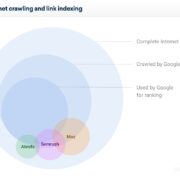
Success has several fathers, such as mentors. Successful mentoring programs are becoming more and more popular and differ from classic coaching.
Not only the individual employee but especially companies benefit when they promote internal successful mentoring programs.
Driven by advancing digitization and demographic change, companies must create a work environment that takes all generations of employees into account.
With Generation Z, there are five different generations on the job market for the first time.
All of them have different strengths, skills, knowledge, and experience. And they all have individual requirements, needs, and wishes for their job, workplace, and managers. The consequence:
- Companies need their own employees for the challenges of the increasing digitalization to make
- Organizations need to secure the knowledge of older generations of employees, such as baby boomers before they retire.
- As attractive employers, companies must motivate, encourage and retain their own employees over the long term.
- In the fight for the best talent, organizations must attract new talent to be successful in the long term.
- However, because many young talents do not want to work in analog companies, you first understand what makes Generations Y and Z tick. Read here what requests the younger generation of employees make of employers and managers.
- Companies have to bundle the strengths of the different generations of employees and use them optimally to ensure their long-term success.
Every company is only as good as its employees. Therefore, functioning personnel development in companies is now essential. This is where successful mentoring ties in.
You might also be interested in:
Company Website: 15 Characteristics Of A Successful Company Website
What Is Successful Mentoring In Companies? And What Is It For?
Successful mentoring as a personnel development instrument is an effective method for exchanging knowledge and experience between employees.
It helps to advance and develop one’s own career and to improve employee motivation in the long term.
Regardless of whether young learn from old or vice versa: all generations of employees benefit from successful mentoring.
Young talents, in particular, want role models, orientation, inspiration, and regular feedback as well as an exchange with bosses and colleagues when they start their careers.
Much more so than the generations before them. On the other hand, today’s young talents will lead our company in the future.
Successful mentoring is based on mutual trust, respect, and understanding. Experienced employees (mentors) pass on their knowledge and experience to less experienced employees (mentees).
A successful mentor assumes several roles and tasks: A role model, advisor, coach, critic, and supporter. Its task is to accompany, support and promote the mentee’s career in a future-oriented manner. As a door opener, he also supports his protégé to achieve individual career goals or build a functioning network.
Benefits Of Successful Mentoring Programs In Companies?
Successful mentoring has several advantages for the company. This includes:
Knowledge Transfer Between The Generations
Successful mentoring is based on the principle of knowledge transfer. The expertise remains anchored in the company through the targeted exchange of knowledge and experience between the generations.
Targeted Talent Promotion
Bypassing on knowledge and experience to his mentee, a successful mentor trains the missing know-how and skills internally. This helps to prepare trainees, juniors or team leads specifically for the demands of the workplace.
Personality Development Through Feedback Culture
Does the self-image of one’s own performance match that of the boss? And what do your colleagues think?
Regardless of whether at the company or individual level: Open feedback is becoming increasingly important within agile structures.
Successful mentoring programs promote an open feedback culture and ideally encourage regular exchange between successful mentor and mentee. In this way, mentees learn to express and accept constructive feedback.
You will also learn how to react flexibly to the ever-changing demands of a changing world of work that digital change brings with it. In particular, feedback motivates employees to perform better.
You might also be interested in:
Mobile Marketing Trends: These Trends Will Affect Online Marketers 2021
Successful Mentoring: Important HR Tool
Thanks to the targeted partnership between successful mentors and mentees, the training of new employees can be shortened or delegated to entire teams.
After all, a new talent works like advanced training for experienced employees. Successful mentoring promotes new ways of thinking and working.
The successful mentor also receives new food for thought and recognizes new paths.
Because the higher a manager rises, the more lonely it becomes. Or companies save costs for further and advanced training if the employees support each other across generations.
Not to be forgotten is that an in-house successful mentoring program is associated with less effort than external training or coaching.
Successful Mentoring – Employee Loyalty.
Young talents not only expect good training opportunities from their employer. Rather, they expressly welcome it when an experienced successful mentor passes on personal and specialist knowledge to them and thus promotes their career development in a targeted manner.
Successful Mentoring: Leadership Skills.
Even the most experienced manager benefits from successful mentoring. Regular exchange, feedback, and new skills are critical, especially when responsibility in the company continues to grow.
However, the successful mentor does not have to be in his own company: Mark Zuckerberg, for example, had Steve Jobs at his side as a mentor, despite the enormous success of Facebook.
Successful Mentoring: In Companies?
In the following, we present the 6 most important steps for successful mentoring in companies.
Step 1: Merging Mentor And Mentee
To check whether successful mentoring makes sense and whether the chemistry between mentor and mentee is right, both parties need to know each other.
Both must be aware that successful mentoring is designed for a longer period of time. The HR department often provides support in searching for an optimal mentor and works with the mentee to establish a basis of trust.
For larger companies, the partner search is also suitable via so-called speed dating.
Step 2: Define And Define Framework Conditions.
After the mentor and mentee have learned and appreciate each other, they must jointly define framework conditions.
This includes the goals, the period, the locations, the meeting points, communication channels, the individual expectations of the mentor and mentee, and the limits of the successful mentoring program.
Step 3: Select Topics And Tie Them Down
Depending on the industry, position, career level, and employee relationship, successful mentoring topics vary.
Companies that have already successfully implemented successful mentoring programs address the following questions in particular during this phase of the discussion:
- What are currently the most important issues and problems in the workplace?
- What is the relationship like with your boss and colleagues?
- Can you work more efficiently?
- How do you deal with new technologies?
- How can mentees achieve their individual goals; z. B. Promotion, salary increase, or acquisition of new skills
- Can mentor and mentee build a helpful network? And how can the mentor help you get to know the right contacts?
- What intrinsically drives the mentee to be more motivated and satisfied to deliver successful performance?
Step 4: Does Successful Mentoring Works?
Once the framework conditions and successful mentoring topics have been defined, the actual successful mentoring can begin.
This takes up most of the space during the partnership. The mentor does not need any coaching expertise or other skills. His qualification consists primarily of his professional experience.
But not only: trust, communication, and professional interaction between mentor and mentee are decisive for success. Added to this are empathy, diplomatic skills, and understanding.
In addition, the mentor must be capable of criticism and have a positive and open attitude towards (often) inexperienced employees.
Step 5: Evaluate And Optimize The Successful Mentoring
The mentor and mentee should jointly evaluate and evaluate the success of the successful mentoring at the end of the predetermined time.
For example, at a final meeting that comprehensively addresses the successful mentoring goals and the actual partnership. Often the presence of an objective person, such as B. from the HR department or a manager.
Finally, the tandem partners should derive measures and suggestions for the mentee’s future and use their input to optimize the successful mentoring program.
Step 6: Keep In Touch
Even after the successful mentoring program has officially ended, the mentor and mentee should continue supporting each other and staying in contact. Maybe even with reversed roles.
Conclusion
Anyone who creates a digital corporate culture inspires talented young professionals. However, those who provide traditional hierarchies risk the best young employees waving their hands off tiredly.
They have long since ceased to have to rely on a given way of working. So if companies want to win the battle for the best talent, they have to create a work environment that adapts to the expectations of Generation Y and Z.
Companies must not lose sight of the wishes of the established generations. In-house successful mentoring programs effectively exploit the potential of the various generations of employees.
This gives organizations a head start in preparing their employees specifically for their needs and equipping them with knowledge and skills. The following applies to everyone involved: Good mentoring pays off.
Employees and executives are thus able to master the challenges of demographic change in a targeted manner.
At the same time, they motivate their employees, ensure greater job satisfaction and long-term employee loyalty.























Comments